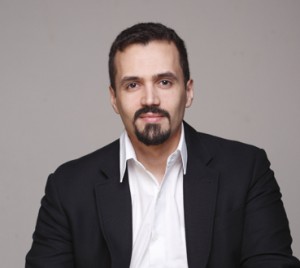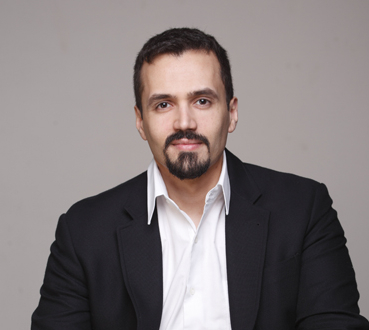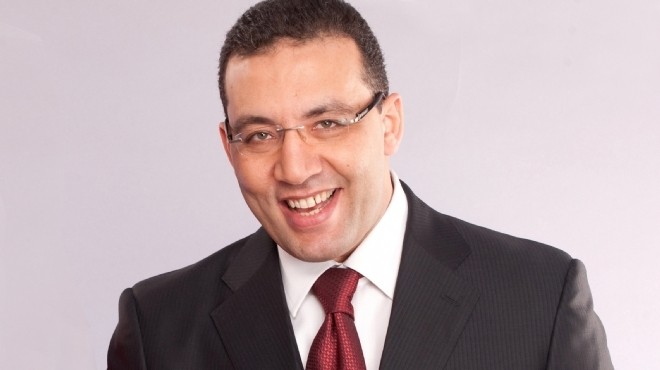
As President Morsi walked into Al-Azhar conference hall on the “Night of Power” in Ramadan of 2013, the room rose. The last time he had spoken on such an occasion, General Sisi had replaced Field Marshal Tantawi, and Mr. Morsi had taken full control of the presidential office. Tonight was different, however; he addressed not the Egyptian people, but his own movement, the Muslim Brotherhood. For years, the narrative of the Muslim Brotherhood had been built on the twin pillars of the mihna of 1954 under Nasser, and the interruption of the democratic process in Algeria by the military. On that night in Ramadan of 2013, Mr. Morsi constructed a new pillar in the movement: a revolutionary one.
“Three years ago, sons and daughters of our country descended to the streets of our cities and towns, to demand their dignity against their fathers and mothers who had, for so long, ignored their rightful demands. Three years ago, our people broke the cycle of corruption, repression and violence – and we had a chance to begin a new chapter in our history. Today, I stand before you, knowing that it was only because of that chance our young people took, that I am the president of the Egyptian republic.
“Our revolution has had a challenging time – and today, a year into my term, I stand before you to say that I share responsibility for many of those challenges. We have a new constitution – but the process that I felt was necessary at the time to withstand the machinations of the deep state, led us into a very volatile atmosphere. I did what I did to protect this Republic – but in the process, I know that our fragile institutions were tested.
“On the second anniversary of our revolution, unknown to you, I returned to Tahrir Square. I remembered how during the uprising of the 25th of January, Mubarak refused to believe what was happening outside of his walls – and I did not want to be drawn into that same state of mind. What I saw troubled me – for our people were not remotely as united as they had been. And the slogans of the revolution were aimed at their president – not in support of him.
“I could not turn back the clock – but I could adjust our course. I realised that ours is a country still in a revolutionary transition, and it had to be treated as such. My electoral victory was not mine, as a presidential candidate – but the revolution’s temporary victory over the deep state. Our way forward could only be successful if we recognised that.
“Thus, I submitted a recommendation to the upper house of parliament to legally suspend the more controversial articles of the constitution that had so angered those who had opposed it, until the lower house could be elected. I know that this angered many of you, but I am glad that under my direction, the upper house agreed – and they ought to be congratulated for this. I asked my then Prime Minister to resign and become my adviser, and put in place a cabinet of experts to take our country through to the next parliamentary elections. I held this responsibility personally, but urged those in the political opposition to provide whatever advice or names they had.
“I removed the prosecutor general, and formed a new body where senior members of the judiciary and civil rights organisations had to agree, by consensus, on three possible candidates for the position. I then chose the candidate nominated with the most votes, and instructed the government to remain outside of his affairs for a period of three years. Moreover, I had the minister of the interior dismissed, and I insisted that the cabinet take up the key and vital demands of the revolution: economic reform, security reform and a war on corruption. Without economic reform and social justice, our revolution means our people go hungry. Without security reform, the tools of the police state can always be used again – whether against those who might have won through the ballot box one day, or those who were the politically marginalised the next day. Without a rooting out of corruption, and penalising those who insist on it as a basis for governance, there will only be co-option of evil – there will never be the curbing of it for the good of Egyptians.
“In the spirit of the revolution, I formed the presidential revolutionary council, composed of those whom the Egyptian people placed their trust in, besides myself and the candidate of the deep state. Hamdeen Sabahi, Amr Moussa, and Abdel Moneim Abul-Fotouh were appointed to this council, and the co-ordinator of the National Salvation Front, Mohamed ElBaradei, was made its secretary. I made a public pledge, which I have kept to: that what this council could demand as consensus, I would forge into policy. To ensure that they realised its potency, I gave the council powers of Vice President. Our parliamentary elections are almost upon us – and we must ensure that this parliament is fully representative of our people. I will ask the presidential council to nominate a group of 50 that will provide constitutional amendments on the controversial articles, to then be put to the newly elected parliament for a vote.
“This is not usual in a democracy – but Egypt is not a usual country. We are in a revolution that demanded bread, freedom, social justice and human dignity – and we do not accept that the revolution be described as ‘over’ until we ensure that our country is on the right, and inevitable track to fulfilling that revolution. It is my firm belief that the Tamarod campaign that wanted to call for early presidential elections failed to fill even Tahrir Square alone for a day and a night, because the Egyptian people were willing to keep giving this presidency a chance, after my measures in this area.
“But I, as everyone knows, come from a particular background – the Muslim Brotherhood. I am proud of my connection to this historic Egyptian movement, and I make no apologies for its trying to do what it believed was best for the motherland. But the Muslim Brotherhood comes from a particular time, with particular challenges – and it needs to renew its commitments. At the same time, the close victory that the revolution had over the deep state’s candidate shows that a good portion of our country still does not view the Muslim Brotherhood as it ought to be.
“For that reason, although I no longer have any political position within the party, I personally call upon the Muslim Brotherhood to enact two main policies in support of the revolution. The first is to make a public pledge that it will not run another candidate for president in the next election. The second is to make a full and clear cut between the Muslim Brotherhood’s leadership and the leadership of the Freedom and Justice Party, never allowing the former to overrule the latter in any way. Finally, to remove the stipulation that if a member of the Muslim Brotherhood wishes to be involved in politics, he or she must be a member of the Freedom and Justice Party. The movement of Hassan Al-Banna must return to its roots, and cease to be politically partisan.
“Moreover, we must take a no-tolerance policy with regards to those that support us with a diatribe of exclusion and sectarianism. The Freedom and Justice party is the largest, most well organised political organisation that does not advocate a return to the deep state – our responsibility is not the same as partisan political gain.
“Moreover, as the former head of the FJP, I call upon its leaders to build a new coalition that will build consensus in favour of the revolution; even if it means its own partisan interests suffer. The FJP must realise that its core responsibility is not to build policy in 2014 – it is to act as a buffer and stalwart against the old regime. This phase in our history is not a time for partisan gain – it is a time to ensure that we have a future where political difference can be a normal and healthy part of political life.
“We all know that the deep state is waiting for the revolution to make a mistake that will then turn our people against it. We must, at all costs, avoid that scenario. The Muslim Brotherhood has to realise that the cycle of violence, corruption and political destruction can only be broken when we choose to break it. We, as Egyptians, have been given that chance, twice. The first was the uprising itself – and all of us, as Egyptians, benefited from those 18 days. We could have done better with that chance than the road map we had – but what is done is done. We now have another chance, as the majority of Egyptians chose a candidate not from the deep state. That chance must be taken – not for our benefit alone, but for all of Egypt. Egyptians are crying out for a new politics – and we must give it to them.
In the name of our martyrs, our glorious people, our blessed country. And most of all, asking for the blessings of God upon us all – our revolution continues.”




